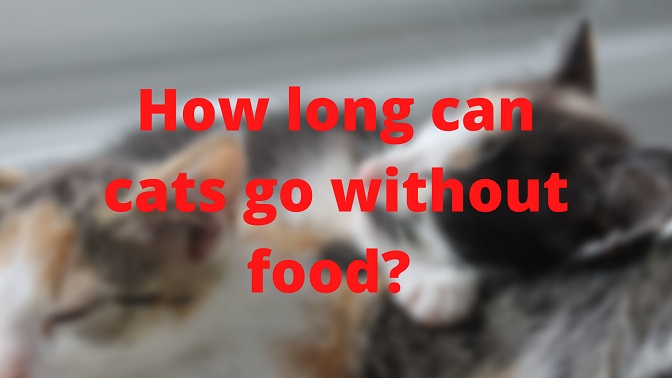
Contents
How long can cats go without food?
How long can cats go without food? If a cat is in good health and drinks plenty of water, he can go up to two weeks without eating. Cats, on the other hand, can only survive without water for three days.
Like all other animals, Cats require adequate nutrition to survive and perform their functions efficiently. As a result, they require food and water to maintain their health.
The majority of people are not aware that cats get the majority of their water from their food. It is dependent on their age, degree of activity, and overall health that they have different daily hydration requirements.
The body prioritizes the shutting down of critical organ systems. The kidneys and stomach are the first organs to be removed. When you are dehydrated, your heart and brain will cling to any remaining water or nutrients in the body. If your cat does not eat or drink, it may suffer permanent consequences.
What a horrific circumstance that no cat should ever find themselves in.
Possible Reasons Why Your Cat Is Refusing To Eat
Cats’ lack of appetite can indicate a variety of medical issues, ranging from basic stomach irritation to early signs of diabetes in some cases. There are a variety of reasons why your cat may be reluctant to eat. How long can cats go without food?
Stress:
As with humans, cats lose their appetite when stressed (or they gorge themselves on everything in sight!). Stress in your cat may be caused by recent changes in her environment, such as a move, the arrival of a new baby, or the addition of another pet.
If your cat is refusing to eat, it could be a sign of a more serious health problem.
Here are a few examples:
Diarrhoea
Kidney disease, also known as Renal disease, has been shown to affect a cat’s appetite. With ageing, the kidneys lose their ability to discriminate between required substances and those that are not. Toxins accumulate in the cat’s bloodstream and interfere with organ functions, causing it to become ill and unable to feed.
Pancreatitis
A functioning pancreas is necessary for digesting as well as insulin production. Inflammation of the pancreas causes digestion to be disrupted due to the disruption of digestive enzymes. After a period of time, the cat’s body begins to digest itself. Fortunately, if pancreatitis is treated promptly, there is no long-term damage to the organs involved.
Is it Possible for Your Cat to Stop Eating?
You can give your cat a liquid treat like tuna water if she isn’t eating much. The fishy aroma and taste should be appealing, and the trace of tuna will deliver nutrients, but the most crucial thing to consider is the water itself.
Dehydration is a life-threatening situation!
Water is essential, and any beverage you can get into her is also essential.
If she doesn’t even drink tuna water, take her to the veterinarian. If your cat suffers from a medical emergency, the veterinarian will begin treating her by administering a fluid drip to rehydrate her.
She may need to be admitted to the hospital for a few days to see a more serious underlying cause for her lack of appetite.
What To Do If Your Cat Stops Eating?
If you cannot take your cat to the veterinarian immediately, you will need to get him to eat or at the very least drink. Here are some ideas to get you started:
Insert the tip of a syringe full of moist cat food into the feline’s mouth.
Inject a small bit of food into your cat’s mouth using your index finger.
If your cat tries to fight back, place a blanket under her belly, back, and paws to protect them. If only her head is exposed, she won’t scratch you and should be less agitated.
Alternatively, if your cat refuses to eat, gently shut her mouth once she has finished.
Feedings with a syringe should be in small amounts and repeated several times per day. Adding moisture to her meal would assist, as will syringing water or tuna juice into her mouth.
Conclusion
Cats are born survivors, no matter what happens to them. They can survive for several weeks without water but not food. If your cat isn’t eating, pay attention to her behaviour. Maybe she’s just being choosy or bored, but it may be something more serious. As soon as she stops eating, take her to the veterinarian as quickly as possible.